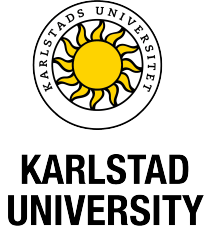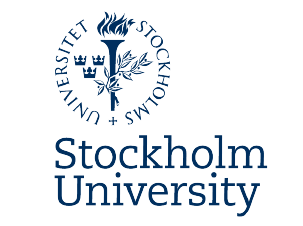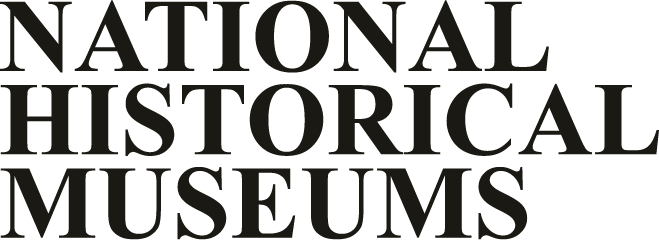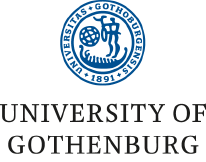Swedigarch is being developed by a consortium of partners that combines its resources and leverages capacities of digitalization to achieve its goals. The consortium is led by Uppsala University and includes Umeå University, Karlstad University, Stockholm University, University of Gothenburg, Lund University, National Historical Museums, and the Swedish National Heritage Board.
Swedigarch is being developed by the following parties and units:
Uppsala University: Department of Archaeology and Ancient History, the Tandem laboratory, Centre for Digital Humanities andSciLifeLab Ancient DNA.
Uppsala University is responsible for Organisation and Leadership (Module 1), operated by the Director of Swedigarch, Professor Karl-Johan Lindholm, assisted by Coordinator Helena Hulth.
Uppsala University is also taking care of Archaeological Excavation and Geodata (Module 3). The main objective is to make GIS data from contract archaeology reusable for research which includes: (1) systems analysis of geodata and implementation in database (GeoServer); (2) developing data models for aggregated analysis and export of excavation data; (3) the harmonising of geodata; (4) metadata completion and enrichment; (5) collation of carbon dates and a database of prehistoric buildings (6) establishing links to trusted repositories. The work of Module 3 is led by Associate professor Daniel Löwenborg at the Department of Archaeology and Ancient History, and includes a GIS-technician and a developer connected to the same department, and a research engineer connected to the Centre for Digital Humanities.
Other participating units at Uppsala University is the Tandem Laboratory, and the SciLifeLab Ancient DNA-unit, both connected to the Swedigarch Module 4.
Lund University: Department of Archaeology and Ancient History, Lund University Digital Archaeology Laboratory (DARKLab), Lund University Humanities Laboratory, Lund University Aviation School.
Lund University is in charge of Cutting Edge and Future Data (Module 5). The Module is led by Professor Nicolò Dell’Unto.
Karlstad University: Centre for Research on Sustainable Societal Transformation; Department of Political, Historical, Religious, Cultural Studies and Department of Environmental and Life Sciences, Geomatics
The Centre for Research on Sustainable Societal Transformation (CRS) at Karlstad University (KAU) conducts multidisciplinary research on current and historical trends as well as future challenges. Researchers work collaboratively across local, regional, national, and international issues, and aim to contribute new research results and methods to address sustainable development and a range of other societal challenges. In Swedigarch, CRS’s main role is to lead Outreach and Societal Impact (Module 6). The module promotes the use of Swedigarch through capacity building among researchers and to develop bridges among academia, science, and society at large with the ambition to develop collaborative initiatives practically contributing to societal change towards the Sustainable Development Goals (SDGs) of Agenda 2030. The work is led by the historical archaeologist Eva Svensson, Professor of Risk and Environmental Studies.
Umeå University: The Environmental Archaeological Lab, Humlab
Umeå University leads Archaeological Science Research Data (Module 4) and will ensure the availability and integration of interdisciplinary analysis data from archaeological science. Researchers, data scientists, and digital developers from the Environmental Archaeology Lab (MAL) and Humlab at Umeå University join forces to run the Strategic Environmental Archaeology Database (SEAD) to cover the following tasks: (1) systems analysis of new data types and collections; (2) to create and maintain data entry, ingestion, and quality control systems; (3) design and implement data and metadata aggregation systems; (4) design application programming interface (API) connections and external systems; (5) continual development and maintenance of user experience (frontend and API’s); (6) development and maintenance of archaeological science system database (backend); (7) continual data entry and ingestion from other databases. The work is led by Assistant Professor Philip Buckland.
Swedish National Heritage Board: The Swedish National Heritage Board (NHB) is the central administrative agency for cultural heritage, heritage management, historic environment, and museums. The mission of the NHB is to help ensure that cultural heritage is not only preserved, but also utilized and developed in ways that support democracy and sustainability. Within Swedigarch, the NHB are responsible for Data mobilisation beyond FAIR principles (Module 2), and for developing an open aggregator service to harvest and index metadata, and link to sources in various databases. The work involves operation developers, system developers, solution architects and many others. It is led by Dr Åsa M Larsson, Head of Unit for Technology and Digital Mediation.
National Historical Museums: Department of Collections and Research, Department of Digitization and IT.
The National Historical Museums (NHM; Statens historiska museer) holds Sweden’s largest collections of archaeological and numismatic artefacts. The main tasks as Swedigarch partner are (1) to FAIR-ify and expand collection metadata, providing a model for the integration of museum collections; (2) to adapt and develop the Collections Management System to match FAIR-ified data and deliver research quality metadata to Swedish Open Cultural Heritage (SOCH); and (3) to develop advanced and research-oriented search functions that will enhance the digital usability of archaeological collections. NHM alsocontributes (4) to expand the reference collection of 3D archaeological artefacts, (5) to enhance museum data interoperability for archaeological science research data, and (6) to increase the impact and societal value of the infrastructure, in particular by supporting collaborations and maintaining communication with end-users. The work is led by Dr Elin Fornander, Head of Research and Development, and engages a team of systems developers, collections curators, and photographers.
University of Gothenburg: Department of Historical Studies, Archaeology
Scholars at the Department of Historical Studies of the University of Gothenburg conducts research and training in archaeology, classical studies, and history. The department contributes to Outreach and Societal Impact (Module 6), with a particular focus on detailing how archaeological research can address Agenda 2030’s SDGs. The work is a collaborative between archaeologists Professor Christian Isendahl and Assistant Professor Federica Sulas. Both contribute to publications, seminars, workshops, and other collaborative activities aimed at practically detailing the potential of archaeological research and knowledge of long-term human–environmental interactions to contribute towards the SDGs.








